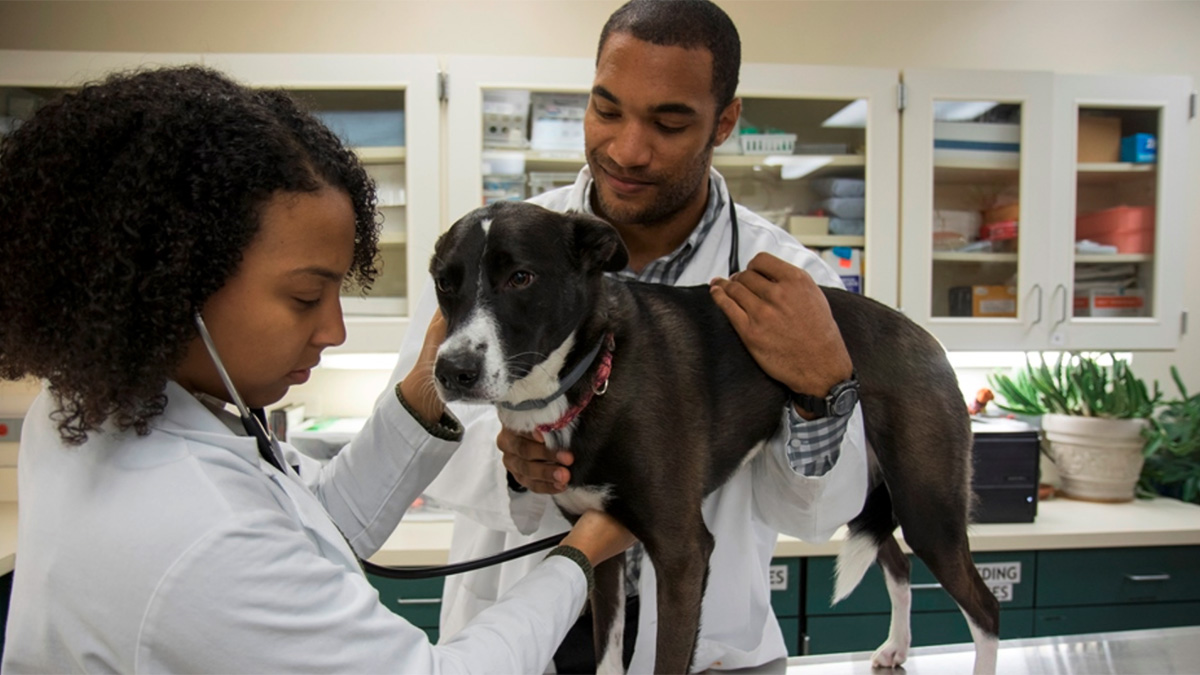New developments in Pet Cancer Surgery procedures
The Significance of Very Early Discovery: Insights From a Veterinary Oncologist
Early discovery of cancer in family pets is a necessary subject for animal proprietors and vet professionals alike. Veterinary oncologists emphasize the importance of acknowledging refined indications that might show severe health concerns. Common symptoms frequently go undetected till they escalate. Recognizing these very early indication and innovations in diagnostic methods can make a substantial difference. What actions can family pet owners require to enhance their pets' chances of early diagnosis and much better treatment outcomes?
Understanding Cancer Cells in Pet Dogs: Typical Kinds and Signs And Symptoms
While many pet owners might not understand it, cancer cells is a considerable health problem influencing animals, similar to it carries out in humans. Typical types of cancer cells in family pets include lymphoma, mast cell tumors, osteosarcoma, and mammary lumps. These hatreds can materialize in numerous ways, depending on their place and kind. Symptoms typically consist of unexplained weight reduction, persistent throwing up, modifications in hunger, or unusual lumps and bumps. Animals may also display lethargy, difficulty breathing, or unwillingness to exercise, which can show underlying health and wellness concerns. Early indications can be subtle, making it vital for pet owners to be observant of their animals' behaviors and physical problem. Understanding these usual kinds and connected signs can equip owners to seek vet treatment without delay, possibly resulting in earlier diagnosis and treatment choices. Identifying the signs of cancer cells in family pets is an essential action in the direction of improving their health and wellness and high quality of life.
The Function of Veterinary Oncologists in Early Discovery
Vet oncologists play an important function in the early discovery of cancer in pets, as their specialized training furnishes them with the abilities necessary to identify refined indicators that might be forgotten by family doctors. They make use of a mix of professional competence and advanced diagnostic devices to analyze people extensively - Veterinary Oncology Services. By acknowledging early symptoms and risk variables, oncologists can lead family pet owners towards timely interventions, raising the possibilities of successful therapy
Vet oncologists frequently team up with general practitioners to create screening procedures customized to particular types or age groups, boosting the effectiveness of early detection initiatives. They educate family pet proprietors on the significance of regular examinations and understanding of adjustments in habits or physical problem. With these proactive procedures, veterinary oncologists greatly add to boosting outcomes for pet dogs diagnosed with cancer cells, emphasizing the important nature of their function in veterinary medical care.
Developments in Diagnostic Techniques for Animal Cancer Cells
Advancements in diagnostic techniques have actually noticeably boosted the ability to spot cancer in family pets at earlier phases. Techniques such as advanced imaging, including MRI and CT scans, provide in-depth inner sights, allowing vets to recognize lumps that might not be palpable. In addition, the growth of minimally intrusive procedures, such as great needle aspirates and biopsies, allows precise sampling of tissues for histopathological assessment with minimized anxiety for the animal.
Emerging molecular diagnostics, including genetic testing and navigate here biomarker identification, are transforming the landscape of veterinary oncology. These approaches can recognize certain cancer cells types and predict responses to therapy, assisting in individualized treatment plans. Moreover, advancements in lab strategies, such as fluid biopsies, are beginning to offer non-invasive alternatives for checking tumor development and therapy effectiveness. Collectively, these innovations stand for a considerable leap onward in veterinary medication, stressing the essential function of very early detection in improving results for pet dogs diagnosed with cancer cells.
How Family Pet Owners Can Acknowledge Indication
Just how can animal proprietors come to be cautious in acknowledging possible indication of cancer? Recognition of physical and behavior changes in family pets is vital. Common signs consist of unusual sleepiness, loss of appetite, or unexpected weight changes. Family pet proprietors ought to likewise take note of relentless vomiting or diarrhea, which may signify underlying issues.
Changes in the skin, such as swellings, bumps, or sores that do not heal, call for prompt veterinary focus. Additionally, owners need to note modifications in drinking practices, boosted peeing, or trouble in breathing. Unexplained limping or discomfort may likewise be indicators of even more major problems.
Normal vet exams can help determine these warning indications early. By preserving a close observation of their family pets' wellness and behavior, owners can play a crucial function in very early discovery, possibly leading to better results ought to cancer cells be diagnosed. Identifying these signs may considerably influence an animal's lifestyle.
The Impact of Early Discovery on Therapy End Results
Early discovery of cancer cells in family pets plays an essential duty in establishing therapy end results, as it usually permits a larger series of therapeutic options. When cancer cells is detected in its onset, vets can execute less intrusive therapies, increasing the likelihood of effective intervention. Early-stage cancers might additionally react much better to chemotherapy or radiation, leading to boosted survival prices and total top quality of life for the family pet.
Additionally, punctual diagnosis facilitates an extra tailored treatment strategy, straightening with the specific needs of the animal. This can include customized drug programs or medical treatments that are much less hostile. Conversely, late-stage discovery commonly results in minimal alternatives, a lot more aggressive therapies, and poorer prognoses. Consequently, the significance of very early detection can not be overemphasized; it essentially modifies the trajectory of treatment, making it critical for animal proprietors to remain attentive for any indications of illness in their cherished buddies.
Frequently Asked Questions

How Can Diet Plan Influence Cancer Danger in Pet Dogs?
Diet considerably influences cancer risk in pets, as particular nutrients and food types can either hinder or promote tumor growth. A well balanced, nutrient-rich diet may help in reducing the possibility of developing cancer cells in pets.
Are Certain Types More Prone to Cancer cells?
Specific dog types, such as Golden Retrievers and Martials artists, show higher cancer cells vulnerability as a result of hereditary predispositions. Some feline types likewise reveal increased cancer cells risks, highlighting the relevance of breed-specific health and wellness recognition amongst animal proprietors.

What Are the Expenses Linked With Early Cancer Cells Detection?
The prices linked with very early cancer detection can differ greatly, encompassing diagnostic find out tests, assessments, and prospective therapies - Veterinary Cancer Specialist. Purchasing these solutions typically leads to better health and wellness end results, eventually saving money on much more substantial future clinical expenses
Can Injections Stop Cancer in Family Pets?


Injections might minimize the danger of certain cancers in pets, especially those linked to viral infections. Their performance differs, and pet owners ought to seek advice from vets for customized advice relating to vaccination and cancer avoidance approaches.
Exactly How Commonly Should Family Pets Be Evaluated for Cancer?
Family pets need to usually be evaluated for cancer cells every year, especially as they mature or if they show threat variables. Regular vet examinations can assist determine prospective concerns early, enhancing treatment outcomes and total wellness management.
Early discovery of cancer in animals is a crucial subject for pet dog proprietors and vet experts alike. Early indicators can be subtle, making it important for pet owners to be watchful of their animals' behaviors and physical problem. Veterinary oncologists play a necessary function in the very early detection of cancer cells in pets, as their specialized training equips them with the abilities necessary to identify subtle indications that might be overlooked by basic specialists. By preserving a close observation of their animals' health and habits, owners can play an essential duty click to read more in early discovery, potentially leading to better results must cancer be identified. Early discovery of cancer in pets plays a crucial duty in figuring out treatment end results, as it commonly enables for a larger variety of therapeutic alternatives.